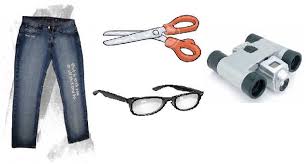*The auxiliary verbs help the main verb.We also call them the helping verbs.By using helping verbs ,we can negate sentences and form questions.We can't do without helping verbs.The auxiliary verbs (helping verbs) are used as a main verb or as a helping verb in sentences.As a main verb ,they stand alone.But as a helping verb,they are followed by a verb.The auxiliary verbs are :be,have and do.
1-Verb to "Be"
- present simple(am-is-are)
- Past simple (was-were)
- Past participle (been)
EX:He is ill.(main verb)
EX:They are absent.(main verb)
EX:She was at school.(main verb)
EX:They were at the supermarket.(main verb)
EX:I am reading Arabic.(helping verb)
EX:He is watching TV.(helping verb)
EX:We are sweeping the floor.(helping verb)
EX:They were playing football.(helping verb)
EX:He was washing the car.(helping verb)
*We negate verb to be by putting "not" to it.And we form questions by inverting the subject and verb to be:
EX:I am not an English teacher.
EX: Are you an English teacher?
EX:He is not (isn't) ill.
EX:Is he ill?
EX:He was not (wasn't) washing the car.
EX:Was he washing the car?
EX:They were not (weren't) playing football.
EX:Were they playing football?
2-Verb to "Have"
- Present simple (have-has)
- Past simple (had)
- Past participle (had)
-I don't have a car.
-Do you have a car?
EX:He has a pen.(main verb)
-He doesn't have a pen.
-Does he have a pen?
EX:I had a sandwich.(main verb)
-I didn't have a sandwich.
-Did you have a sandwich?
EX:I have bought a car. (helping verb)
-I haven't bought a car.
-Have you bought a car?
EX:I had travelled abroad.(helping verb)
-I hadn't travelled abroad.
-Had you travelled abroad?
*Note:When verb to have is the main verb ,we use "do" as a helping verb in negation and question.We use do or does in present simple and did in past simple.But If it is the helping verb,we use it in negation and question.We only put "not" to it in negation but in question,we invert the subject and the verb to have.
- Present simple (do-does)
- Past simple (did)
- Past Participle (done)
EX:I do my homework every day.(main verb)
-I don't do my homework every day.(don't is a helping verb but do is a main verb).
-Do you do your homework every day?(The first "Do" is a helping verb but the second "do" is a main verb).
EX:The did their homework.(main verb)
-They didn't do their homework.
-Did they do their homework?
EX:She goes to the cinema every Friday.(present simple)
-She doesn't go to the cinema every Friday.
-Does she go to the cinema every Friday?
EX:We ate fish yesterday.(past simple)
-We didn't eat fish yesterday.
-Did you eat fish yesterday?
*Note:Verb to do must be followed by infinitive.
*Note: Verb to "do" as a helping verb doesn't appear in affirmative sentences but it appears only in negative and question.
*Verb to do appears in affirmative as follows:
1-As a main verb :
EX:I do my homework every day.
2-To strengthen meaning:( It means actually or already)
EX:I do play chess every day.
EX:He did go home.








